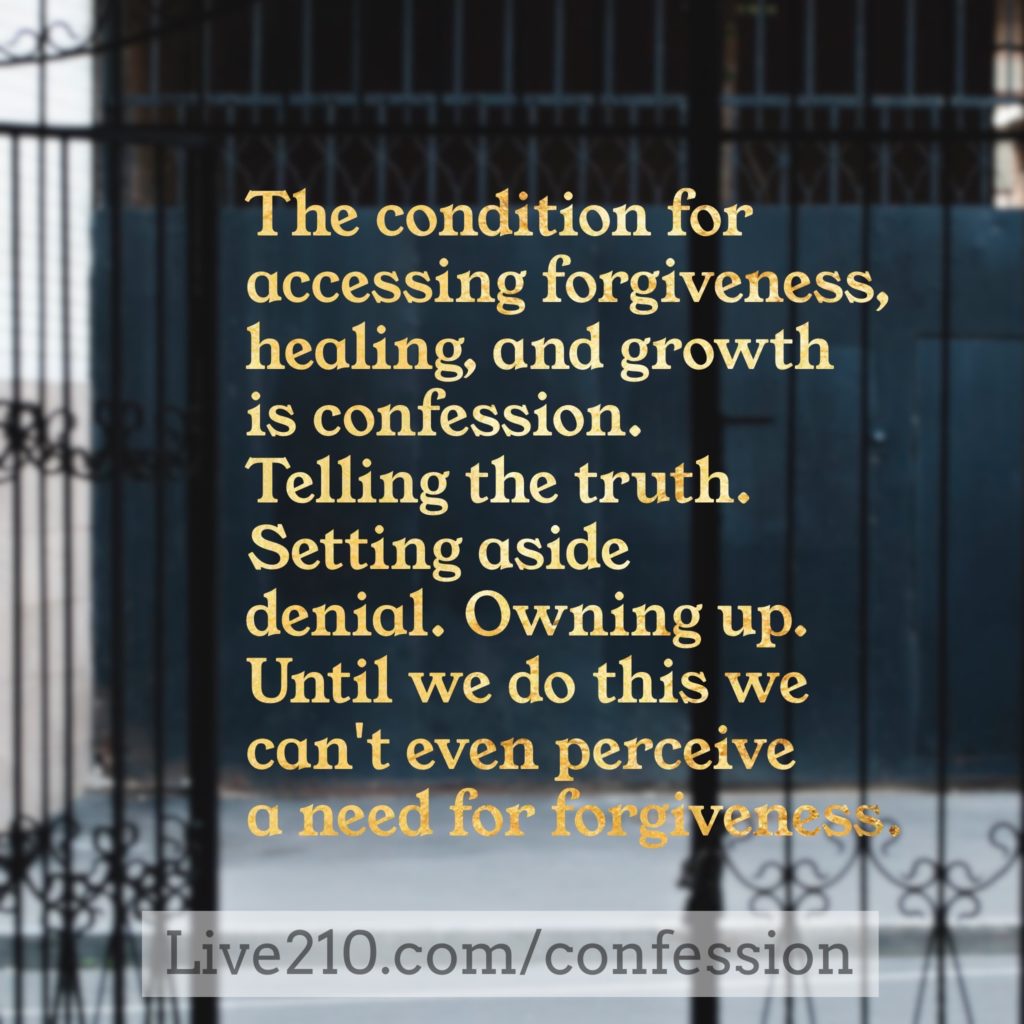7 min. to read.
There is a narrow gate that must be passed through if we will experience growth and spiritual maturity.
It’s called narrow, not because it’s hard to find, but because so few people want to go through it. We want what lies on the other side—growth, maturity, a greater sense of peace, and awareness of God’s presence in our lives. That sounds fantastic, but the gate is narrow.
Going through it is often painful. We are very good at convincing ourselves there’s probably some other path if we keep looking. So we look and look.
We read books and attend courses hunting for the next, better spiritual teaching or practice. We scrutinize our teachers, hoping this one is wise, truthful, and won’t disappoint our standards of purity or doctrine. Some of us work so hard trying to build our own way.
In spite of our best efforts, there is no other gate.
What gate is this, that opens access to spiritual and personal growth, pointing us toward a life lived in awareness of God’s presence? What gate allows us to move from merely wearing a Christian label to truly being people who follow Jesus?
The gate has different names when approached from different directions. In recovery work, the gate is giving up denial. In mental health work, it’s referred to as taking responsibility or letting go of blame. In my Christian tradition, it is called Confession and Repentance.
Regardless of the label, it reduces to one crucial choice: Agreeing to tell the truth.
Agreeing to tell the truth about ourselves, even when it is painful.
Until we can do this, we will stay stuck in a “Groundhog’s Day” cycle of living without learning. We may be gathering more and more information about God, more practices, more arguments, more hours of participation in religious activities, but all those precious ingredients will fail to produce what matters most: spiritual maturity.
No more Spiritual Bypassing.
Instead of walking through this gate, we try so many other paths.
We lean hard on prayer, asking God to change our circumstances or take away the difficult feelings welling up inside of us. We wield our theology of grace like a shield anytime we feel confronted. We are “new creations!” How dare someone bring up our past?!
When our inner tension rises, we avoid the silence needed for introspection, drowning out the Still Small Voice with noise and Netflix or a whirlwind of justifiable obligations. With well-meaning platitudes, we suppress our emotions and encourage others to do the same.
Alison Cook Ph.D., therapist and the author of Boundaries for Your Soul, has called this behavior Spiritual Bypassing. This apt label refers to behavior that looks spiritual, but instead of coming from a desire to mature or follow Jesus well, it is driven by our fear of facing what is true, or what we feel about what has happened.
Spiritual Bypassing is often behavior that, in the church, earns us affirmation. We volunteer more and more time. We dig deep into Bible study and theology. We hold our questions at bay, pressing down hard on the bubble of emotions trying to rise to the surface. We shift blame onto God with phrases like, “I’m just not feeling led…” or “God’s not released me to deal with that yet.”
All of this is a flailing effort to avoid the humbling gate. Confession requires us to speak the truth. THIS is what I’ve done. THIS is what was done to me. THIS is how I feel about it. THIS is how I’ve hidden and lied and justified. All of THIS is true.
And that? That is painful.
Sitting with my unsettling emotions, seeing the parts of me that are ungracious, naming my shame and fear, accepting responsibility for the people I’ve hurt—even if I didn’t mean it like that. All of that hurts. And so we wonder. Is this necessary? Can I just feel sorry in my heart and move on?

The Great Granddaddy of all Sin.
No. We can’t. Not if we want to mature in the image of Christ. There’s no other way than through the gate.
I was reading today in Eugene Peterson’s book, The Jesus Way. He wrote this simple and profound observation: “The great, great-granddaddy of all sins is the denial of sin, the refusal to admit sin. Such refusal is odd because, as G. K. Chesterton once observed, sin is the only empirically verifiable item in the entire Christian…belief system. No one has seen God at any time, but we see sin with our own eyes all the time. And yet denial is commonplace.”
Perhaps we can overcome particular behavioral sin simply by stopping the behavior. Choosing not to steal or kill is an improvement over the alternative, right? But the problem with this “great-granddaddy of all sins” is this. Our only weapon against it is telling the truth about our weakness, our failures, our fear, and our sin. The very thing we are desperate not to do.
Jewish scripture warns us (Proverbs 28:13) “Whoever conceals their sins does not prosper, but the one who confesses and renounces them finds mercy.” Our Christian elders echoed this same spiritual truth. “Confess your sins to each other…so that you may be healed.” (James 5:16) They also told us that this narrow gate is the very way to access the reconciliation we long for. “If we confess our sins, he is faithful and just to forgive us.” (1st John 1:9)
Growth lies through the gate.
That place of forgiveness and restoration where we can learn from our mistakes and grow in maturity is on the other side of this gate. God’s forgiveness is the path to healing, and God’s forgiveness is always available. It is, I think, unconditional from God’s point of view, but it is certainly not unconditional from our perspective. No gate is.
The condition for accessing what lies beyond a gate is passing through it. The condition for accessing forgiveness, healing, and growth is confession. Telling the truth. Setting aside denial. Owning up. Until we do this, until we confess, we can’t even perceive a need for forgiveness.
Instead, we stand at the gate, motivated by other drives. We want others (maybe even God) to hear and accept our self-justifications. “If only you understood why I did this, then, of course, you’d see that I couldn’t have done otherwise. I fact, what I did was good!” As long as that desire drives us, there is no place for forgiveness, or reconciliation, or growth to take hold in us.
So consider this gate. If you are struggling with stagnancy, or feeling like you can see what growth looks like but can’t access it, or if you sense that maybe you are bandaging over something painful in your heart with more and more religious words and activities, perhaps you need to stop and tell the truth.
Yes. I did that.
Yes. That was done to me.
Yes. This is what I was responsible for.
Yes. This is how I feel about it.
(And this is how I feel about feeling that way.)
Yes. These are the ways I’ve lied, or hidden, or justified myself.
Yes. I want to make things right and do this differently.
Yes. This is the truth.
Whatever growth we hope to have is found when we pass through this narrow gate. All of that is simply to say: If you’re ready to grow, then tell the truth.
Disclosure of Material Connection: Some of the links in the post above are Affiliate Links. This means if you click on the link and purchase the item, I will receive an infinitesimal affiliate commission, which I solemnly swear to spend on important books and trivial electronics. Regardless, I only recommend products, services, or books that I have personal experience with and that I believe will add value to my readers. More information here.

Great post to read today, Marc. I am often reminded of my prayer with a women’s retreat leader years ago, “Lord, please don’t let me become complacent.” I was far from complacent then, but that was a great concern for some reason. I’m at a different season in life today (things out of my control) and unable to actively serve or participate in ways that nurtured growth and fulfilled in previous days. In this quieter, seemingly less-active space, it’d be easy to succumb to complacency/stagnation. God is offering an opportunity to love Him just as much by allowing introspection and learning to use my moments in other ways that please Him. One thing I have learned, we can be stagnant in our relationship with the Lord, whether busy or not. But, when I intentionally draw near to Him in various ways–one is learning to talk to Him more about the ways I sin–the more I want to stay close to Him. I am very grateful that any time I’ve started to slide into the complacent mindset, I talk to Him about that and He has graciously pulled me away from that path.
It sounds like lots of opportunities to trust! Usually not fun, but one of the ways we grow. (Just put out a podcast episode about that very thing!)